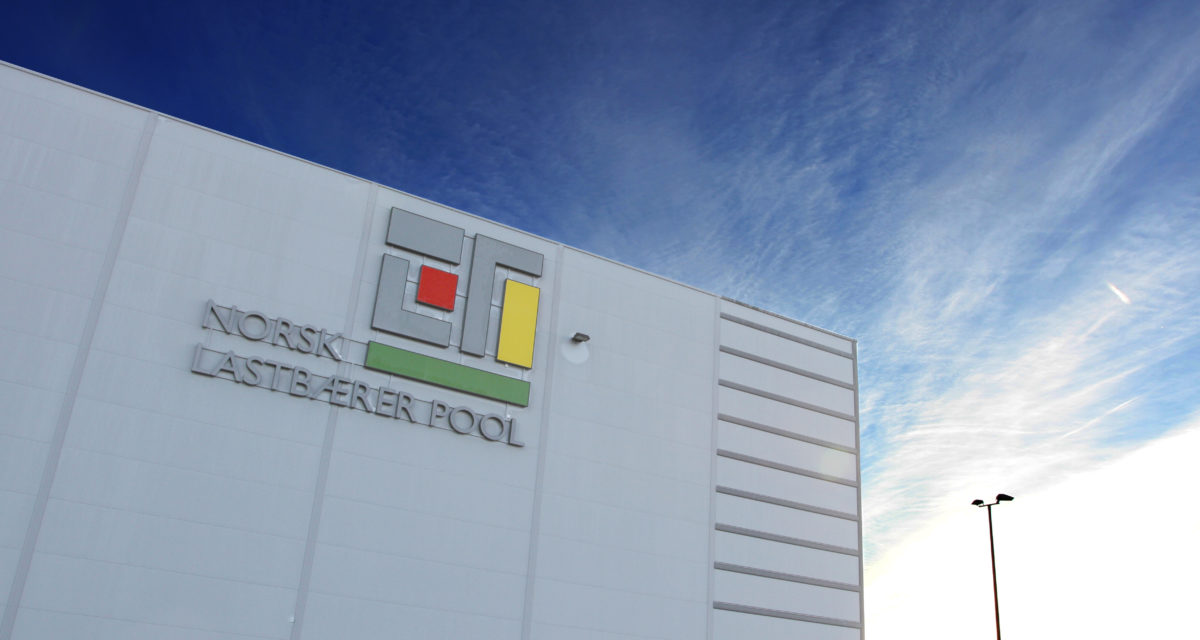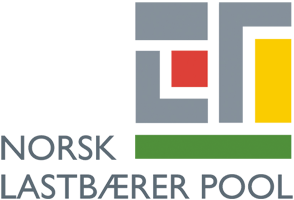
Norsk Lastbærer Pool operates a pallet return system between Norwegian manufacturers and suppliers that aims to encourage the adoption of sustainable measures across the country’s grocery industry.
Heated debates around how pallets should be dealt with, gave birth to Norsk Lastbærer Pool (NLP) in 2006. Numerous discussions between grocery suppliers and wholesalers in Norway led to the conclusion that they should join forces and work together, in order to make the use of pallets more efficient and environmentally-friendly. Having come to an agreement, NLP was set up with two organisations sharing its ownership equally – DLF (the non-profit association of the grocery suppliers of Norway) and DMF (a trade organisation in the country).
The solution became a pooling system which after a short time proved to work very well. Once the wooden pallet flow was handled, the road was open to introduce the Norwegian market for the plastic pallet. Today, the plastic pallets make the grocery industry more environmentally friendly, more sustainable and more cost-effective than ever.
Now we would like to share our story with you and therefore take you back to the time just before 2006, when the wooden pallet flow created unnecessary manual labour and the industry saw the need for a solution.
Do you have questions for us at NLP? We are happy to help you. Contact us here for a nice conversation.
Manual handling of the wooden pallet flow
The story of NLP began with a manual pallet exchange system. The system worked as such that the manufacturer of the goods received a receipt from the carrier when he delivered the pallets of goods to the wholesaler’s warehouse. When the carrier delivered the goods to the wholesaler, receipts were also exchanged with information on the number of pallets the wholesaler had received from the carrier. It is not difficult to imagine how this system could create a series of uncertainties and disagreements about who owed whom a pallet or two.
The trade associations address the problem
This manual and somewhat complex exchange system created a number of challenges for the grocery industry. The trade associations DMF and DLF soon decided it was time to do something about the problem
It was then that DMF took the initiative to find a solution once and for all. A consulting company was hired to find what possible solutions existed. The consulting company concluded that the best solution would be to create a pooling system for wooden pallets. From 2006 to 2008, intensive work was done to gain control of the wooden pallet flow. It did not take too long before we started to look into the possibility of developing a separate plastic pallet.
Cooperation with the Swedes
When NLP began to also look at the possibility of developing its own plastic pallet, it was only natural to work with Svenska Retursystem (SRS) our counterpart in Sweden. SRS were at the time also looking to develope a plastic pallet. This cooperation would prove to be fruitful and useful for both parties.
As good as, or better than, the wooden pallet
The goal of developing a plastic pallet was to come up with a solution that would be as good as, or better than, the well-established wooden pallet. The development began towards the end of 2009, and all of 2010 was spent developing and testing plastic pallets from various manufacturers.
The choice finally fell on Shuert Industries in Detroit, USA, where our plastic pallets are still being manufactured to this day. During the testing of the different pallets, this was clearly the pallet that performed the best. The reason is that they use a very special “Twin-sheet” technology that ensures that all pallets meet the industry’s strict requirements and standards.
New standard in the Norwegian and Swedish markets
During 2010, this plastic pallet was chosen as the standard solution for the grocery industry in Norway and Sweden. The first Norwegian customers on the new plastic pallet were Maarud, Sørlandschips and Kims,
What will the future bring?
So far, it has been rewarding to be on this journey in NLP, and there is no reason why the road should end here. Most indications show that the market for plastic pallets will continue to grow in the future. The need for sustainable, efficient solutions suitable for automation is great and increasing.
Contact us if you have any questions. We are happy to respond to your inquiries. You can find our contact information here.
